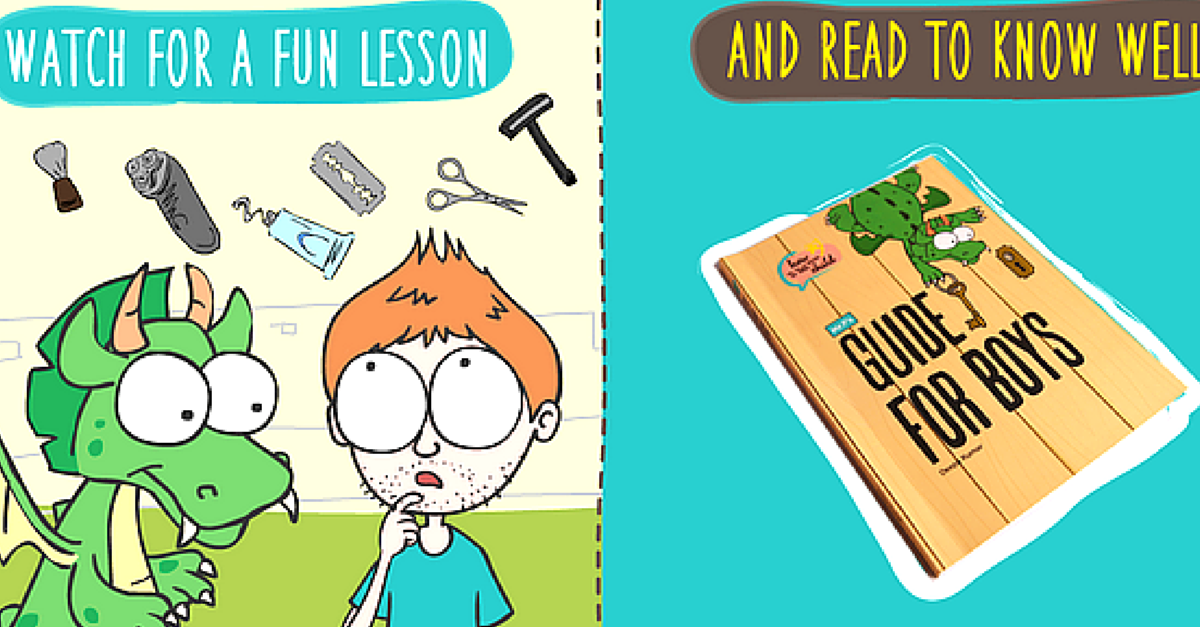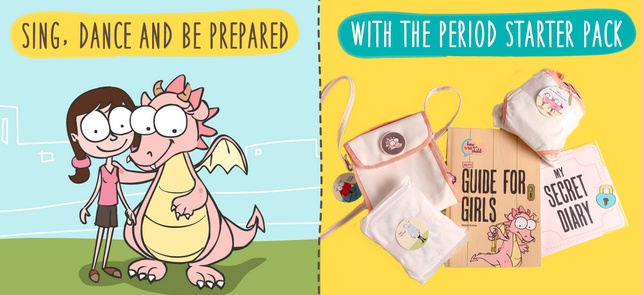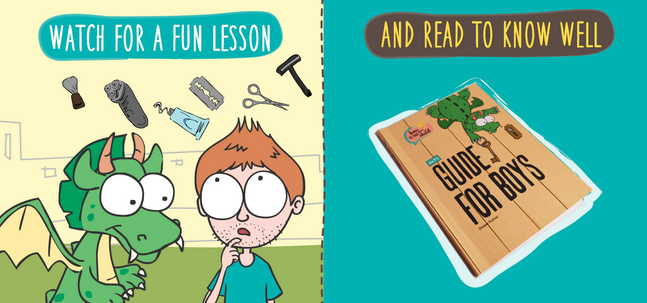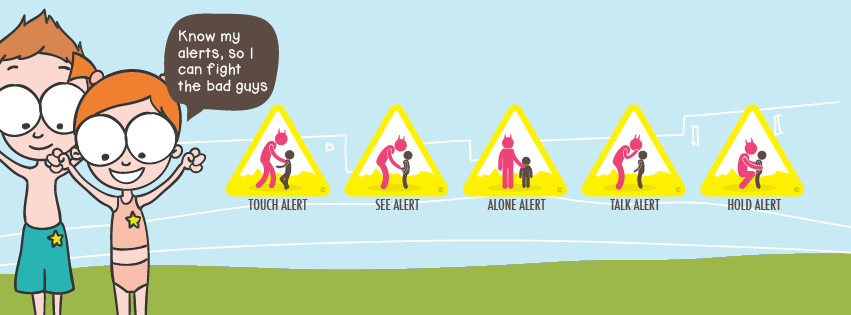This Website Makes Talking to Kids About Child Sexual Abuse and Puberty Easy
Educating young children about sexual abuse is not an easy task. Deepa Kumar has made an informative website that features animated cartoons to educate both parents and children about this crucial issue.

Educating young children about sexual abuse is not an easy task. Deepa Kumar has made an informative website that features animated cartoons to educate both parents and children about this crucial issue.
Deepa Kumar has two beautiful daughters who are fast growing up. When she first talked to her daughters about puberty and child sexual abuse, they showed a lot of apprehension and confusion.
So she came up with an interesting way to impart this information. She created a playful website where two fictional characters (friendly dragons), Mr. P and Ms. P, talk to children about this important subject without any awkwardness whatsoever.

“Their bodies are changing. They have so many question and are very anxious. Often, it is very difficult to explain all of this to them. The conversation should be normal and positive, it is nothing to get paranoid about,” says Deepa.
Kumar launched ‘How To Tell Your Child’ in September 2014, and uploaded the colourful and simple videos made by her and her team.
Kumar did not only focus on girls — she talks to them about sexual abuse, puberty lessons and menstruation –but also created a separate section for boys. The videos in this section are oriented towards puberty in boys and child sexual abuse as well.
The high point of her initiative is early intervention. She focuses on the behaviour of the abuser and how a child should react when he or she comes across an abusive situation.
“Many people focus on good touch and bad touch. But I feel if the pedophile has managed to come so near the child that he/she has managed to touch him or her, then it is too late. Intervention has to be done to spread awareness about precaution. Even if the child realizes it is a bad touch, the damage is already done. We are trying to enable kids to sense the situation and take action before anything like that happens,” she says.
Kumar also reaches out to parents and gives them lessons on how to talk to their kids about puberty and abuse.
From providing necessary information on how to make school safe for the kids, to dealing with situations where a child has already faced abuse, Kumar provides the necessary support to both parents and kids.
To reach out to a larger number of people, she has connected with organisations and schools where she holds workshops for kids. A video screening, followed by discussion forums, presentation and counselling are some of the key features of her work.
Within a year of its operations, the initiative has attracted many kids and adults. Her videos have been seen by over 10 lakh people online and she gets mails from across the globe asking her to convert these videos in languages other than English.
When a Mexican school teacher observed a student in her class becoming very quiet and shy all of a sudden, she showed Kumar’s video to her class. After watching the video, that student came forward and told her about how she felt uncomfortable around a particular uncle.
“Abuse is not limited to only touching. Many pedophiles also engage kids in watching pornography and sexual talking. All these things are very hard to explain to children. These videos make the process simpler,” she says.
Deepa has also been educating parents about various laws in the country that ensure a child’s safety and what action they can take in a particular situation.
In the future, Kumar wants to take her initiative to more schools at the global level, as she believes it is a worldwide issue and should be taken very seriously.
Kumar has, in a very creative way, simplified a complex topic and made it easier for both kids and parents to talk about abuse without awkwardness and fear.
If you want to reach out to How To Tell Your Child, you can extend your support by putting them in touch with schools and children that can benefit from their intervention.
Check out their website to learn more.
Like this story? Or have something to share? Write to us: [email protected], or connect with us on Facebook and Twitter (@thebetterindia).
If you found our stories insightful, informative, or even just enjoyable, we invite you to consider making a voluntary payment to support the work we do at The Better India. Your contribution helps us continue producing quality content that educates, inspires, and drives positive change.
Choose one of the payment options below for your contribution-
By paying for the stories you value, you directly contribute to sustaining our efforts focused on making a difference in the world. Together, let’s ensure that impactful stories continue to be told and shared, enriching lives and communities alike.
Thank you for your support. Here are some frequently asked questions you might find helpful to know why you are contributing?


This story made me
- 97
- 121
- 89
- 167














